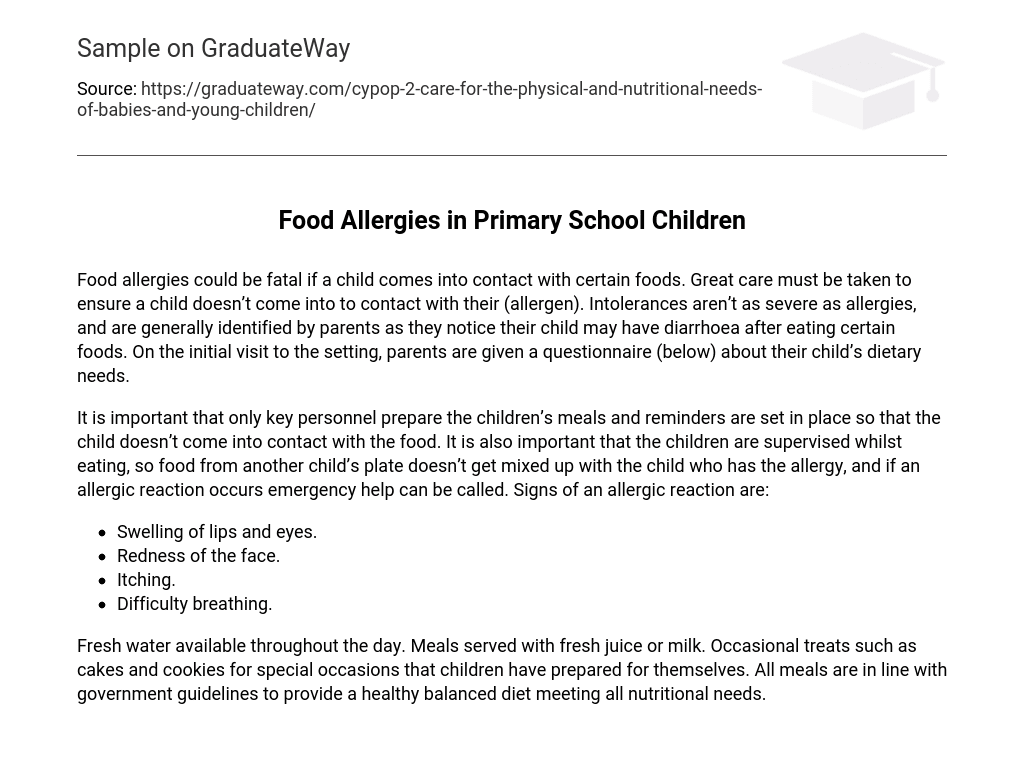It is extremely important to prevent a child from encountering foods they are allergic to, as this could have potentially life-threatening consequences. The parents are responsible for identifying any intolerances their child may have, such as noticing digestive issues like diarrhea after consuming certain foods. During the first visit to the facility, parents are asked to complete a questionnaire regarding their child’s dietary requirements.
Ensuring that only authorized personnel handle the preparation of children’s meals and implementing reminders to prevent the child from coming into contact with allergenic food is crucial. It is equally important to supervise the children while they eat in order to avoid cross-contamination with food from other plates and ensure prompt access to emergency assistance if an allergic reaction occurs. Common signs indicating an allergic reaction include:
- Swelling of lips and eyes.
- Redness of the face.
- Itching.
- Difficulty breathing.
Fresh water is provided all day long. Meals include fresh juice or milk. For special occasions, children occasionally have treats like cakes and cookies that they have prepared themselves. All meals align with government guidelines to ensure a healthy and balanced diet that fulfills all nutritional requirements.





